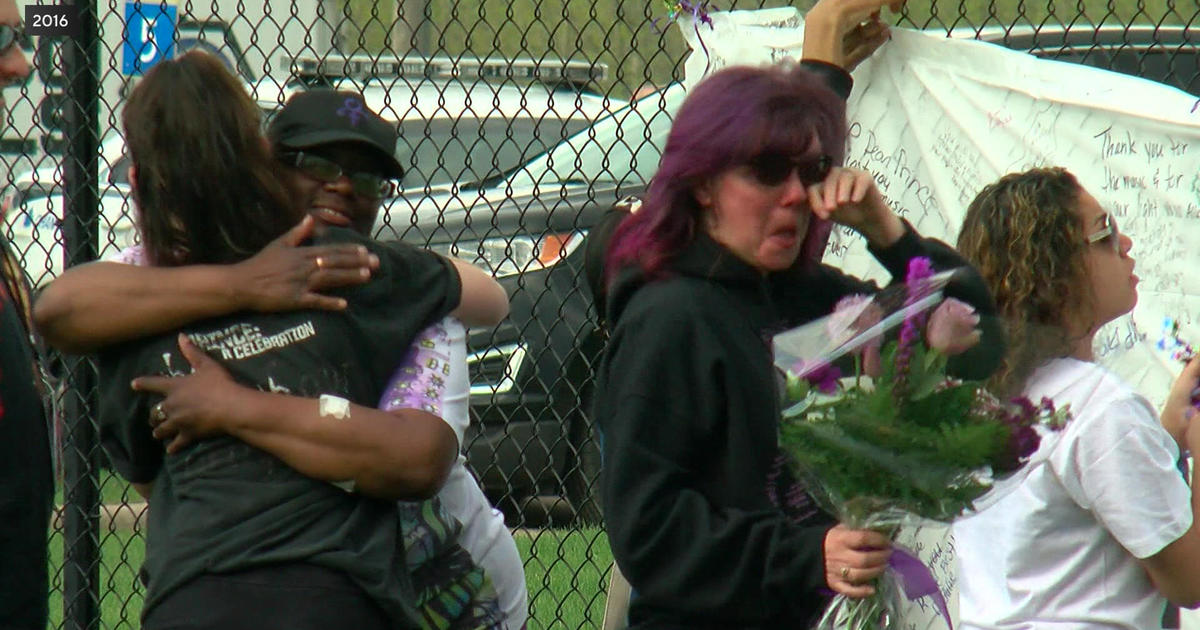Three Health Experts Weigh In On The Future Of COVID
MINNEAPOLIS (WCCO) - There are still so many unknowns about SARS-CoV-2, but experts can make some educated guesses about what might happen during the course of the pandemic.
WCCO brought some questions to three local infectious disease experts: Dr. Omobosola Akinsete, the Chair of the infectious diseases department at HealthPartners, Dr. Michael Osterholm, director of the Center for Infectious Disease Research and Policy (CIDRAP) at the University of Minnesota, and Kris Ehresmann, head of infectious diseases at the Minnesota Department of Health.
These answers are lightly edited for length and clarity.
When will we get back to normal?
Akinsete: "It depends on what you are referring to as normal. If you're talking about pre-pandemic days, like December 2019, I think it's going to take a really long time to get there. What we need to able to get there is at least 75- to 80-percent immunity in the United States – either through vaccination or people who have been infected."
Osterholm: "At this point, I don't think we can say with real certainty. There are two factors at play. One is can we get vaccine out and how much and who will take the vaccine. If we don't see a substantial intake of the vaccine, even if it's available, we could still see many cases occurring well into the summer or fall. The second thing that will really have a major impact on what will feel like getting back to normal is what role this new variant plays in terms of disease transmission. I think that we could clearly see over the next several months, the very worst of the pandemic to date."
Ehresmann: "In my mind, I've been thinking in terms of the fall of 2021, so I'm anticipating nine months of vaccinations. If we reach a level of 70- to 80-percent vaccination coverage by the fall of 2021, then that should make a difference in how we're functioning as a society."
What percentage of people need to be vaccinated for herd immunity?
Akinsete: "I think it's probably is about 75% to 80%. but when it comes to SARS-CoV-2, it has become more infectious than what we're thinking. We think that this new strain from the UK and from South Africa, might be more transmissible, so therefore, that herd immunity needs to be higher before we can determine whether people would be immune to it or not."
Osterholm: "Clearly, it has to be 70% or higher. Anyone who tells you what that number is, I would go any further with that. We just don't know.""
Ehresmann: "I'm looking at at least 80% vaccination coverage."
Do you think we will vaccinate enough people?
Akinsete: "I hope so, I really hope so. I think we will achieve it eventually, I just don't know when. Ideally, it would be the summer or fall, but I think it might take until next year until we get herd immunity, unless people change their minds about getting vaccinated."
Osterholm: "We will vaccinate a large portion of our population that I'm confident in, but will it be enough to actually slow down transmission enough to the point where we feel safe and back in public places doing the things we love to do. I don't think at this point we have enough information to know that."
Ehresmann: "Yes, I do. Right now, in Minnesota, I realize we don't have enough vaccine as we'd like to get, but we are overwhelmed by people reaching out who want to be vaccinated. I think that when the vaccine was first being discussed and had the term Operation Warp Speed, that didn't exactly generate confidence. We joked that we wished it was Operation Safe Speed. Now, that the vaccine is out and millions of people are getting vaccinated and we know it has a 95% efficacy, I think more and more people are thinking, I may have been reluctant at first but I'm going to get it. I think that we will definitely have to keep doing more education, but I feel more confident about people's willingness to be vaccinated than I did last September."



